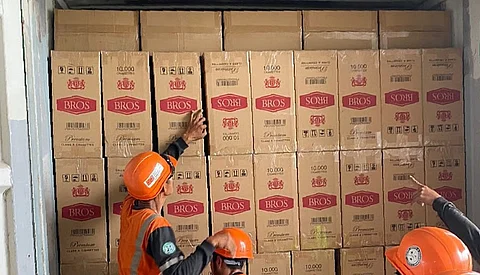
- NEWS
- the EDIT
- COMMENTARY
- BUSINESS
- LIFE
- SHOW
- ACTION
- GLOBAL GOALS
- SNAPS
- DYARYO TIRADA
- MORE

The Department of Agriculture (DA) is intensifying its crackdown on illegally imported onions after samples from Manila’s Paco Public Market tested positive for E. coli, raising significant food safety concerns.
Agriculture Secretary Francisco Tiu Laurel Jr. issued a warning about the contaminated onions, many of which were notably larger than local varieties, a common indicator of foreign origin.
He confirmed that no import permits have been issued, stressing the DA’s commitment to protecting Filipino farmers who have just finished their harvest season.
“This is a food safety issue and a clear threat to public health,” Laurel said, adding that the DA will confiscate contaminated onions as mandated by the Food Safety Act of 2013.
The Bureau of Plant Industry (BPI) and other DA field units have been ordered to inspect public markets for potentially smuggled onions and submit samples for testing.
Laurel has also enlisted the Philippine National Police for intelligence gathering to identify and apprehend illegal importers.
The DA’s heightened vigilance follows growing reports of oversized onions entering local markets without proper inspection or sanitation.
In line with this, BPI director Gerald Glenn Panganiban formally alerted the Manila local government unit to the lab results, which indicated possible fecal contamination and poor handling practices.
“To protect the public and consumers from food-borne illnesses and unsanitary conditions, we recommend the confiscation of the said commodities,” Panganiban wrote in a letter to the local government of Manila.
According to the Mayo Clinic, E. coli can cause symptoms such as diarrhea, nausea and vomiting, which may appear three to four days after exposure.
In a separate operation, the BPI and Bureau of Customs intercepted 25 metric tons of red onions at the Mindanao International Container Terminal in Misamis Oriental.
This shipment will undergo laboratory tests for heavy metals, pesticide residues and microbial contamination. If deemed safe for consumption, Laurel said the government might distribute the onions to prevent waste.
